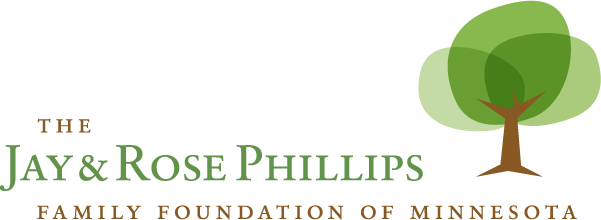The following blog, re-posted with permission, was originally posted on the Voices for Racial Justice website. The Foundation has supported the work of Voices of Racial Justice (formerly Organizing Apprenticeship Project) and Hope Community for many years. Our most recent support to Hope Community has been for its equity work in Minneapolis Public Parks. This blog discusses that work focused on organizing efforts on the ground as well as building allies from within the system, as an inside-outside game.
WRITTEN BY VINA KAY, EXECUTIVE DIRECTOR, VOICES FOR RACIAL JUSTICE
When Voices for Racial Justice released the OUR MPLS racial equity agenda in January 2014, parks equity was a strong priority. Our work is always done in partnership, and our partnership with Hope Community to address inequities in the Minneapolis parks system has spanned several years. My colleague (and Voices for Racial Justice board member) Chaka Mkali has been organizing for parks equity at Hope Community for nearly 10 years. In addition to being a powerful organizer, community leader, and artist, Chaka is a self-described “parks geek.” So, of course, parks equity was part of our agenda for racial equity in Minneapolis.
Early on, we met with parks commissioners and shared the agenda. We heard some commitment to advancing racial equity in the parks system, from analyzing and prioritizing budget decisions to engaging more authentically with community partners about their priorities for the parks. We knew the grassroots support was building for a more equitable parks system. Now we were hearing that leadership was also moving in that direction.
But change is hard, and the Minneapolis Parks and Recreation Board is like many large institutions. It takes multiple shifts to change deeply embedded practices and policies and turn toward a racial equity analysis. Even with the will and intention, breaking through layers of institutional practice – what we at Voices for Racial Justice call institutional racism – takes more than good intentions. It takes a strategy.
As a community organization committed to organizing and the power of people to influence change, we understand the outside game. We work with organizational partners, we engage community residents, we ask hard questions of leaders, and we hold them accountable in public forums. This outside strategy takes years. But its roots run deep and the work of building true community passion and power pays off by leading to the kind of outside push that creates transformative and sustainable change.
We have come to realize that an additional strategy is in play, especially as we increasingly work with institutional players who want to advance racial equity. They just don’t always know how. They work within a system that is hard to change and that does not always share a racial equity vision. If these internal racial equity champions exist, how do we on the outside take hold of the opportunity that this offers?
We form an inside strategy.
The opportunity to develop and apply an inside strategy has presented itself to us. Following the release of the OUR MPLS agenda, multiple meetings and conversations, and our presentation to a group of government leaders at the Government Alliance on Race and Equity convening in August, we caught the attention of MPRB staff who are working to develop a racial equity framework to guide their planning and action. So when Voices for Racial Justice was approached by MPRB staff to consider a consulting role to guide them in a racial equity process, we said yes. But not without first making some important inside strategy commitments to how we do our work:
- Engage partners. We immediately reached out to Hope Community and developed a plan to engage them as co-consultants in the work. We did this with complete transparency to both the MPRB staff and to Hope. The trust and credibility with our longtime partner was the first priority and we would not take on a project that would undermine the organizing and vision around parks equity.
- Maintain the outside strategy. We made clear to the MPRB staff that we would only do this consulting work while also maintaining our outside game. We would continue to engage community partners and develop parks equity forums and other community events that would engage community members in articulating their vision for our parks. Not only would we continue our community-based grassroots strategy – we might use the knowledge we gain from being an inside partner to advance our outside game.
- Stay transparent. Our credibility with our community partners is important and core to how we do our work as organizers. Those relationships are based on years of building trust and being accountable to each other. So our transparency is first to those partners. We will continue to write about what we are learning and share how developing this inside-outside strategy is advancing parks equity. We will also share the challenges to this work, knowing that many lessons will emerge. Similarly, we will be transparent with our institutional partners. They deserve our honesty in this hard work of building racial equity and we believe that commitment will actually help them be successful as internal racial equity champions.
So stay tuned as we practice all three commitments in the months to come. We are at a turning point in how we achieve racial equity in Minnesota and across the country. The urgency is shared by many of us, regardless of which side of the door we are on. We hope to practice the courage and humility to follow through on what we in our shared communities want for a more racially just and fair world.
